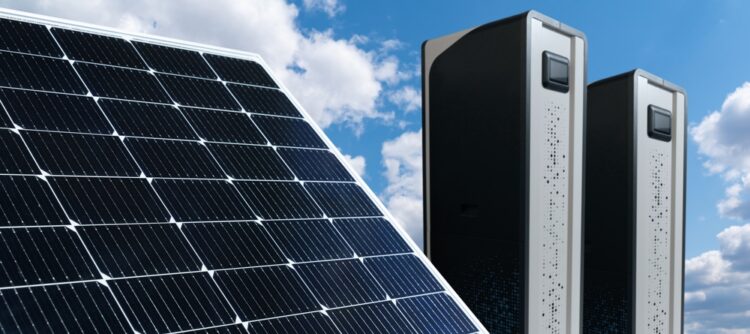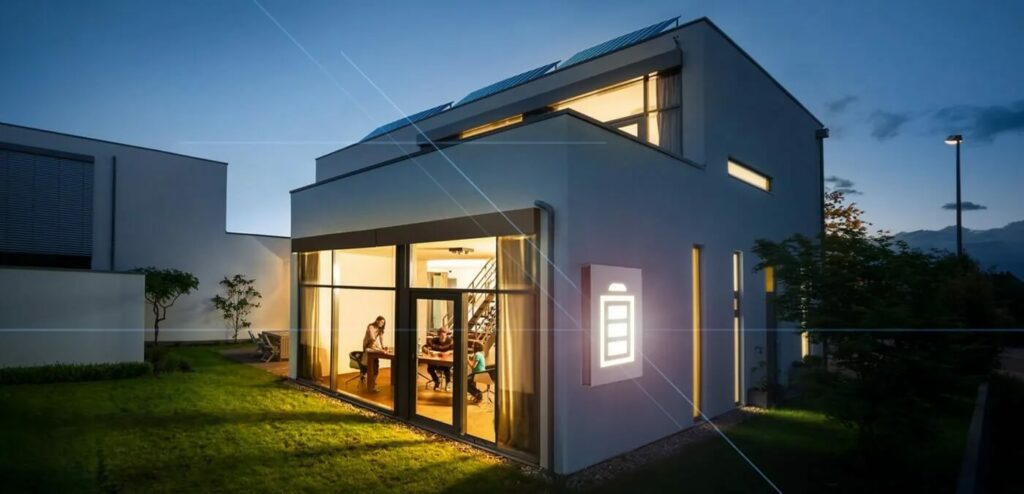Solar panels have long been a popular solution for Australians looking to cut energy costs and reduce their carbon footprint. However, with the rising popularity of battery storage, more households are taking full control of their energy usage. By combining solar panels with a battery, homeowners can store excess energy for use during the night or cloudy days, maximising their energy efficiency and reducing reliance on the grid. In this post, we’ll explore the efficiency of solar panels with battery storage, their growing popularity in Australia, and the technical specifications you should know. We’ll also discuss customer and installer feedback, along with the costs involved in making this investment.

Efficiency of Solar Panels with Battery Storage
Solar panels are efficient in harnessing sunlight and converting it into electricity, but without battery storage, homeowners can only use this energy when the sun is shining. The addition of battery storage changes this dynamic, allowing excess energy generated during the day to be stored for later use. This increases self-consumption and reduces the need to buy electricity from the grid at night, which is when energy costs are usually higher.
Most modern batteries typically offer round-trip efficiency rates of 80% to 90%, meaning that you retain the majority of the energy stored. This level of efficiency can make a big difference in your energy savings over time. Many Australians find that combining solar panels with a battery allows them to be energy-independent, especially during peak usage hours or in regions where power outages are common.
The Popularity of Solar Panels with Battery Storage in Australia
In Australia, solar energy adoption has soared in recent years. With over 3 million homes now equipped with solar panels, the country leads the way in residential solar uptake. The growing popularity of battery storage is adding to this trend. More homeowners are realising the benefits of storing their solar energy for later use, reducing their reliance on the grid.
Battery storage has become particularly popular in areas with high electricity rates or where feed-in tariffs (FiTs) have dropped. Instead of sending excess solar energy back to the grid for a low return, more Australians are choosing to store it for their own use. This shift has made solar-plus-storage systems an increasingly attractive option for both urban and rural households.

Technical Specifications of Solar Panels with Battery Storage
When considering a solar panel and battery system, it’s essential to look at the technical specifications. Most solar panels range in power output from 330W to 400W, with efficiency rates between 17% and 22%. The higher the efficiency, the more electricity the panel can generate from the same amount of sunlight.
Batteries come in various capacities, typically ranging from 5kWh to 13.5kWh for residential use. A larger battery can store more energy, allowing you to run your home for longer periods without drawing power from the grid. Lithium-ion batteries, such as the Tesla Powerwall 3, are among the most common due to their reliability and long lifespan. When choosing a battery, it’s important to consider its depth of discharge (DoD), which refers to the percentage of the battery that can be used without affecting its lifespan. Most high-quality batteries have a DoD of 80% or higher.

What Installers and Customers say about Solar Panels with Battery Storage
Installers and customers alike praise the growing trend of combining solar panels with battery storage. Many installers note that battery systems are becoming easier to integrate with existing solar setups. They also highlight how battery technology has improved, with more reliable and longer-lasting products entering the market.
From a customer perspective, the main benefit is the ability to store excess solar energy for later use. Homeowners appreciate the increased energy independence and the potential for lower electricity bills. Many customers also report that they feel more secure knowing they have backup power during outages, particularly in regions prone to blackouts.
Costs of Solar Panels with Battery Storage
The cost of installing solar panels with battery storage depends on the size of the system and the type of battery you choose. On average, a 6.6kW solar panel system in Australia costs between $4,000 and $9,000. When you add a battery, the price can increase by another $5,000 to $15,000, depending on the battery’s capacity and brand.
While the initial cost may seem high, the long-term savings can be significant. Homeowners who invest in solar panels with battery storage often find that their electricity bills are drastically reduced, sometimes by up to 90%. Additionally, many states and territories in Australia offer rebates or incentives for solar and battery installations, further reducing the upfront cost.
It’s also important to factor in the ongoing savings from reduced grid dependence and the potential to avoid rising electricity prices. Over time, the system may pay for itself, especially with the right combination of solar production and energy storage.
Conclusion
Solar panels with battery storage represent the next step in energy independence for Australian homeowners. By combining these technologies, you can maximize the efficiency of your solar power system, reduce your reliance on the grid, and take control of your energy usage. The popularity of these systems is only growing, driven by the desire for greater energy security and the potential for significant cost savings.
With high-quality solar panels and modern battery systems available, now is an excellent time to consider this investment. While the upfront costs can be substantial, the long-term benefits—both financial and environmental—make solar panels with battery storage a smart choice for any Australian home.